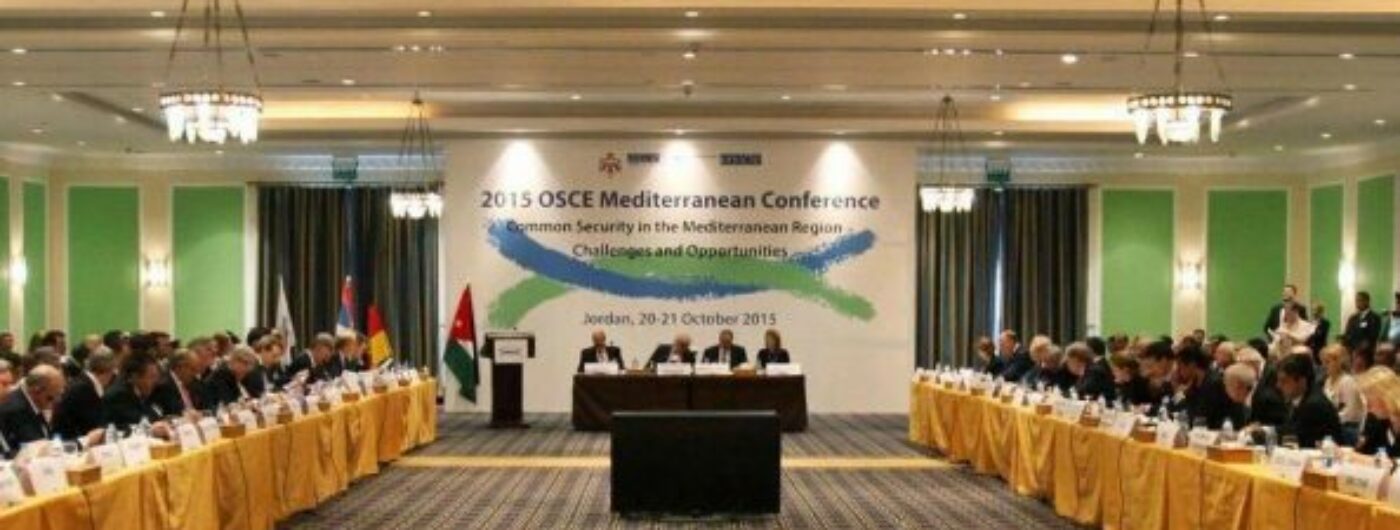
Addressing common security in the Mediterranean through regional comprehensive approach
Barcelona, 21 October 2015. The Secretary General of the Union for the Mediterranean, Fathallah Sijilmassi, participated in the 2015 OSCE Mediterranean Conference “Common Security in the Mediterranean Region – Challenges and Opportunities”, held in Jordan. The event was opened by Jordan’s Deputy Prime Minister and Minister for Foreign Affairs, Nasser Judeh; German Minister for Foreign Affairs, Frank-Walter Steinmeier; and Secretary of State for the Ministry of Foreign Affairs of Serbia, Roksanda Ninčić.
Forty years after the Helsinki Final Act, which maintained that “security in Europe is closely linked with security in the Mediterranean area as a whole”, the inaugural session highlighted the manifold common challenges and opportunities shared by the Mediterranean region. The UfM Secretariat is a longstanding OSCE partner and works in close collaboration with this institution to address challenges in the Mediterranean from a regional, comprehensive perspective.
Moderating the second session on addressing violent extremism and radicalisation that lead to terrorism, Fathallah Sijilmassi said “addressing the security challenges in a comprehensive manner that looks into the root causes and takes into account the importance of socio-economic and sustainable development issues is of the utmost importance and it clearly demonstrates the added value of regional cooperation”.
“Security and stability are fundamental to socio-economic development. Only a stable environment will provide the right conditions for investment and growth”, he said. Sijilmassi underlined “the importance of regional cooperation to trigger sustainable economic growth, job perspectives for youth, a culture of inclusiveness and the promotion of the role of women and infrastructural and productive investment”. The UfM Secretary General concluded that “regional cooperation on development issues is paramount to stability and peace in the Mediterranean”.
The conference comprised three thematic sessions focusing on: addressing violent extremism and radicalisation that lead to terrorism; the role of interfaith and intercultural dialogue; and irregular migration, refugee protection, migrant smuggling and human trafficking in the Mediterranean. It provided an opportunity to share points of view and experiences to pave the way for forward-looking dialogue and concrete cooperation.

